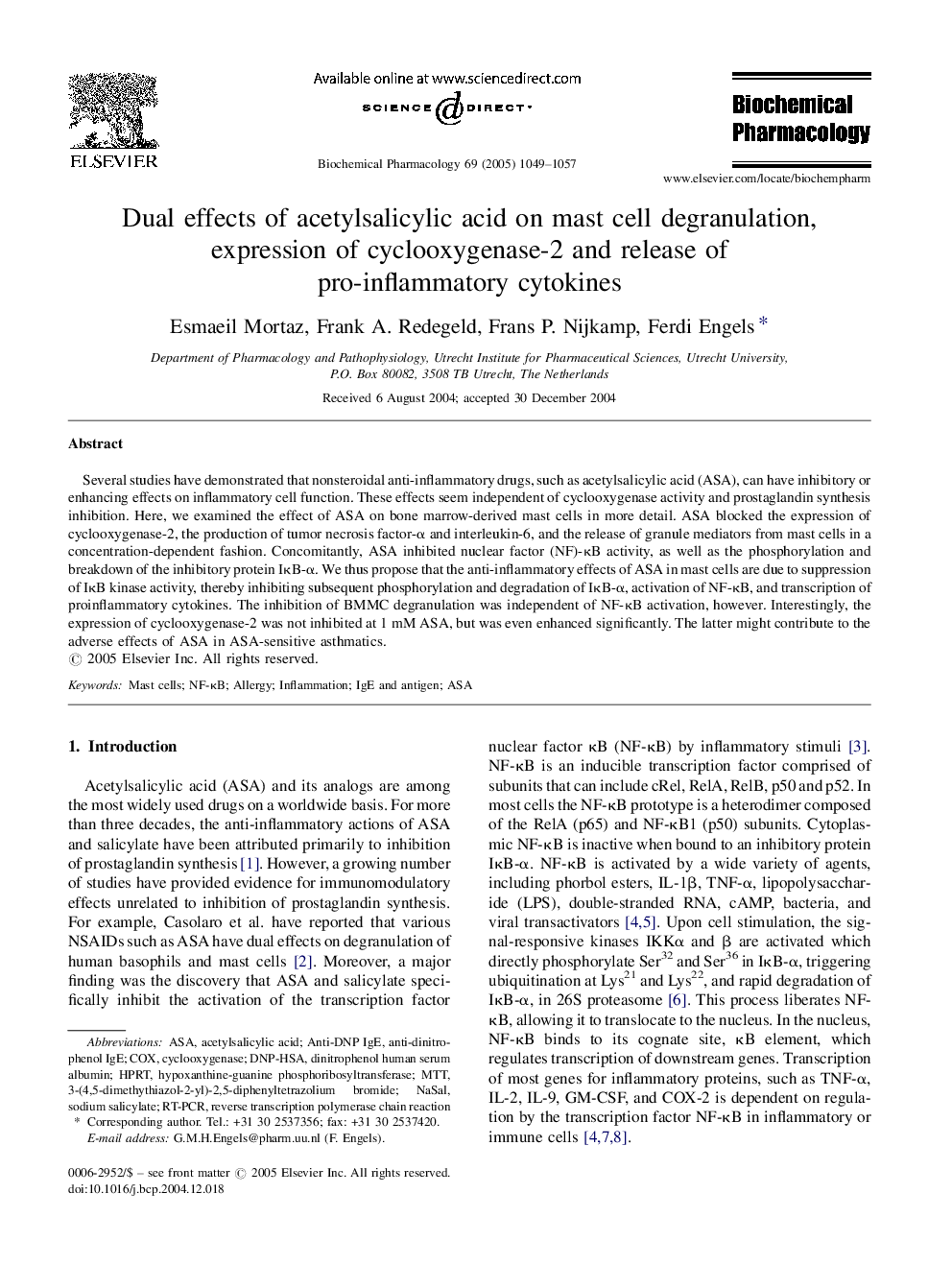| Article ID | Journal | Published Year | Pages | File Type |
|---|---|---|---|---|
| 9001645 | Biochemical Pharmacology | 2005 | 9 Pages |
Abstract
Several studies have demonstrated that nonsteroidal anti-inflammatory drugs, such as acetylsalicylic acid (ASA), can have inhibitory or enhancing effects on inflammatory cell function. These effects seem independent of cyclooxygenase activity and prostaglandin synthesis inhibition. Here, we examined the effect of ASA on bone marrow-derived mast cells in more detail. ASA blocked the expression of cyclooxygenase-2, the production of tumor necrosis factor-α and interleukin-6, and the release of granule mediators from mast cells in a concentration-dependent fashion. Concomitantly, ASA inhibited nuclear factor (NF)-κB activity, as well as the phosphorylation and breakdown of the inhibitory protein IκB-α. We thus propose that the anti-inflammatory effects of ASA in mast cells are due to suppression of IκB kinase activity, thereby inhibiting subsequent phosphorylation and degradation of IκB-α, activation of NF-κB, and transcription of proinflammatory cytokines. The inhibition of BMMC degranulation was independent of NF-κB activation, however. Interestingly, the expression of cyclooxygenase-2 was not inhibited at 1 mM ASA, but was even enhanced significantly. The latter might contribute to the adverse effects of ASA in ASA-sensitive asthmatics.
Keywords
Related Topics
Health Sciences
Pharmacology, Toxicology and Pharmaceutical Science
Pharmacology
Authors
Esmaeil Mortaz, Frank A. Redegeld, Frans P. Nijkamp, Ferdi Engels,
